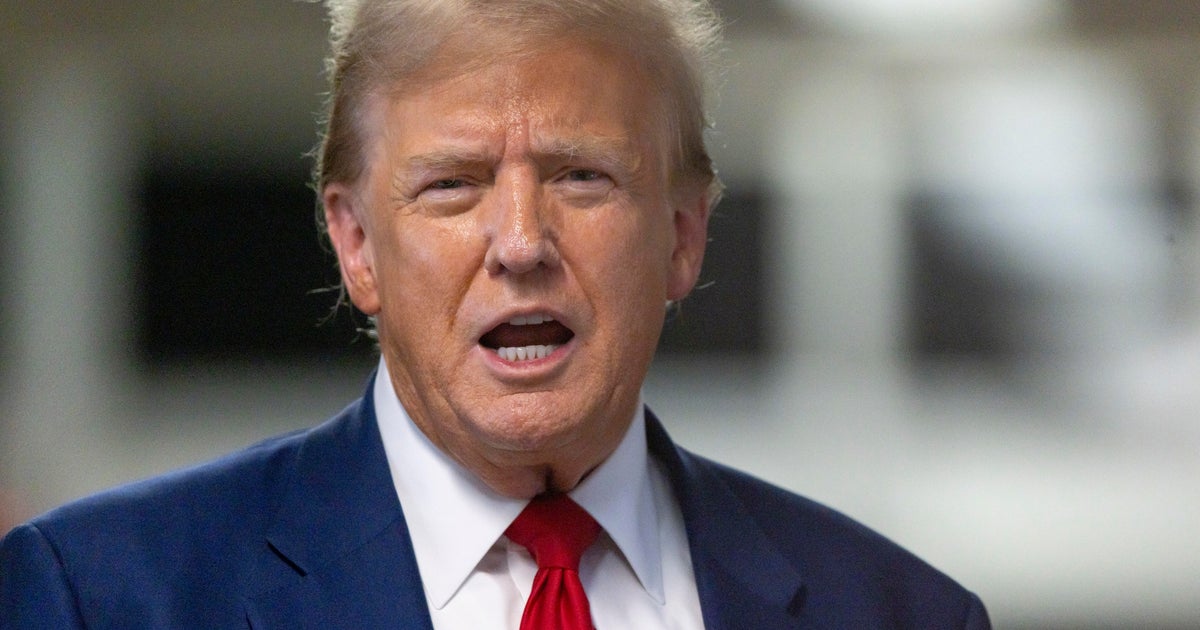Silicon Valley Bank shut down by regulators. Here's what to know.
California regulators on Friday abruptly shuttered Silicon Valley Bank, closing a 40-year-old financial institution that catered to the tech industry and that was the 16th largest U.S. bank before its sudden collapse. The company's stock tumbled 60% on Thursday and had plunged another 70% on Friday before trading of its shares was halted.
The nosedive reflected fears of a bank run, concerns that materialized as depositors — mostly technology company workers and venture capital-backed companies — rushed to withdraw money this week as anxiety over the bank's balance sheet spread.
Regulators stepped in to take control, with the California Department of Financial Protection and Innovation closing the bank and appointing the Federal Deposit Insurance Corporation (FDIC) as receiver. It's the largest failure of a financial institution since Washington Mutual in 2008 at the height of the financial crisis more than a decade ago.
On Friday evening, tech firms including streaming company Roku and video game developer Roblox issued regulatory filings disclosing their exposure to Silicon Valley Bank. Roku told investors it had $487 million at the bank, or about 26% of its cash and cash equivalents, adding that those fund are "largely uninsured." Roblox said about 5% of its $3 billion in cash and securities were held at Silicon Valley Bank.
Typically, bank stocks are staid affairs, which makes Silicon Valley Bank's failure and its regulator-ordered closure all the more noteworthy. Here's what to know about the bank's startling downfall.
What is Silicon Valley Bank?
Silicon Valley Bank, founded in 1983, grew rapidly with the explosion of businesses in the tech-focused region, eventually expanding to more than a dozen states and countries including Israel, Ireland and Germany. Before its failure, it ranked as the 16th largest bank in the country, holding $210 billion in assets.
Silicon Valley Bank offers business lending products such as loans to help finance acquisitions or projects, touting on its website that it "helps businesses at every stage." The bank also provides private banking services and other financial products.
Why was it closed by regulators?
The California Department of Financial Protection and Innovation on Friday said it has taken possession of Silicon Valley Bank. The reason, it said, was "inadequate liquidity and insolvency."
What happens to depositors and clients?
The FDIC said it created a new institution, the Deposit Insurance National Bank of Santa Clara (DINB), and that it had immediately transferred all insured deposits at Silicon Valley Bank to the new bank. All insured depositors will have access to their insured deposits by Monday morning, March 13, the FDIC said in a statement.
Meanwhile, uninsured depositors will receive "an advance dividend within the next week," as well as a receivership certificate for the remaining amount of their uninsured funds.
The main office and its 17 branches will reopen for business on March 13, the FDIC said.
"Banking activities will resume no later than Monday, March 13, including on-line banking and other services," the agency said. "Silicon Valley Bank's official checks will continue to clear."
The standard insurance from FDIC covers $250,000 for each depositor per insured bank. That limit is also per ownership category, such as single accounts or retirement accounts, so one person may have assets with insurance coverage that exceeds $250,000, the FDIC says.
What are bank customers saying?
One Silicon Valley Bank client, FarmboxRx CEO Ashley Tyrner CEO, told CBS MoneyWatch that the events of the last 24 hours have "been nothing short of shocking."
Tyrner, whose company works with health care plans to deliver food to underserved communities, said she was surprised to learn about the financial challenges facing Silicon Valley Bank.
"By the time we began seeing articles it was already a full-swing bank run," Tyrner said in an email. "It seems that while the venture capital circle was publicly boasting their support for SVB in attempt to stabilize the panic, they were calling their portfolio companies behind closed doors telling them to move funds immediately."
She said her company wasn't able to log into its accounts and that the bank's help line had a "disconnected" message or hung up. "[N]one of our account reps would respond to calls or emails," she added.
Tyrner said she plans on moving the remaining funds in the account once she regains access to it.
Why did the bank collapse?
On March 8, Silicon Valley Bank parent SVB Financial Group said that it was taking "strategic actions," including selling almost all of its available-for-sale securities — $21 billion in bonds. It also said it planned to issue stock as part of the plan to raise capital and strengthen its finances.
SVB, which noted that it would take a $1.8 billion loss on the bond sales, said it needed to take the steps because of higher interest rates and "elevated cash burn levels" by customers. The company also pointed to "pressured public and private markets."
The bank's heavy exposure to the tech sector played a part in its downfall, noted Chenxi Wang, founder and general partner of Rain Capital, in an email. Some of its tech company clients were burning through cash faster than expected in early 2023, Silicon Valley Bank said in its March 8 investor letter. That resulted in lower deposits than forecast, according to the bank.
Silicon Valley Bank's problems were exacerbated by rapidly rising interest rates over the last year, which reduced the value of its bond holdings.
"The bank also made balance sheet management errors by putting too much money into long-term bonds, which became a problem when interest rates surged," Wang said. That "caused non-trivial panic."
The March 8 announcement spooked investors, sparking concerns that clients would yank funds due to the bank's financial uncertainty, which in turn would limit the bank's ability to tap other liquidity sources, said Brandon King, an analyst at Truist, in a note to investors.
"The stock reaction today is evident of concerns around the bank's liquidity," King said.
What are tech investors saying?
Prior to California's decision to shutter the bank, the reaction within Silicon Valley ranged the gamut, with Founders Fund, a venture capital firm co-founded by Peter Thiel, advising companies to take their money out of the bank, Bloomberg News reported.
But others had urged companies and clients to stay put, such as Two Sigma Ventures investor Villi Iltchev, an investor, who wrote on Twitter that Silicon Valley Bank deserved support. "SVB is the most important capital provider to tech startups and the biggest supporter of the community. Now is the time to support them," tweeted Villi.
The question was whether clients would opt to remain with the bank or trigger a classic bank run. Fears about an institution's possible insolvency can become self-fulfilling if enough customers pull their money out of the bank.
"Banks are not like normal companies, and one in crisis can't wait to run a normal auction process — they depend on the confidence of depositors and even an inkling of doubt can snowball faster than nearly anyone imagines, impairing the value of the franchise," wrote Wall Street analyst Adam Crisafulli of Vital Knowledge in a report.
How is this impacting Wall Street and other banks?
Other bank stocks fell Thursday as Silicon Valley Bank shares swooned. Banks lost a total of about $100 billion in market value over the last two days, according to Reuters.
Still, analysts said that Silicon Valley Bank's woes are unlikely to ripple through the banking industry as a whole.
"Current pressures facing SIVB are highly idiosyncratic and should not be viewed as a read-across to other banks," Morgan Stanley analysts Manan Gosalia and Betsy Graseck wrote in a note Friday, according to CNBC.
Silicon Valley Bank could yet impact a major part of the U.S. economy in that tech companies could lose a valuable source of financing, noted Bill Ackman, CEO of hedge fund Pershing Square, on Twitter.
"The failure of [Silicon Valley Bank] could destroy an important long-term driver of the economy as VC-backed companies rely on SVB for loans and holding their operating cash," he noted.
On Friday, large, diversified banks such as Bank of America and JPMorgan Chase pulled out of an early slump due to data released Friday by the Labor Department.
Regional banks, particularly those with heavy exposure to the tech industry, were in decline. Yet it has been a bruising week, with shares of major banks are down this week between 7% and 12%.
With reporting by the Associated Press.



